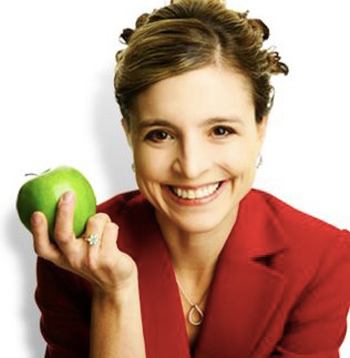In many parts of the country, fall is one of the most beautiful times of the year. Other bonuses of the season including being able to exercise outdoors without fear of heat stroke and the holidays are quickly bringing family an friends together. However, that’s also a downside. With the holidays comes the lure of many enticing foods that will quickly pack on the pounds. Fad diets that promise quick weight loss may show results at first, but many times lost weight is regained as soon as the holiday decor is taken down.
Before this holiday season gives you even more reasons to overeat, change your bad eating habits in favor of ones with lasting weight loss.
We spoke with Susan Albers, PsyD., a clinical psychologist and author of Eating Mindfully, to hear her advice on how to achieve weight loss goals through permanent changes in eating habits.
“Seventy-five percent of overeating is caused by emotions, yet most of our diets focus on food, which is why they fail,” she said. “They don’t teach what to do for cravings or slip ups.”
Instead of another diet failing, focus on what she calls mindful eating. It’s not a diet with menus or recipes, instead it’s about changing psychological habits. “It’s more about how you eat than what you eat,” Dr. Albers said.
The first step in changing how you eat is becoming aware of your habits. For example, do you frequently eat while in front of the TV? Do you eat at the same time everyday whether you’re hungry or not? Do you eat on autopilot, often while engrossed in another activity?
After this awareness is accomplished, start trying to make positive changes. They need not be drastic. Do things that take away from the bad habits you have identified, like not multitasking while you eat. Some can be an interesting experiment, like eating with your non-dominant hand to slow you down. Keep evidence of what you’ve eaten – that pile of snack wrappers can remind you that you’ve eaten way more than you think.
Dr. Albers told us, “One of my favorite stress-busting foods is pistachios – they’re low in calories, the lowest in fat among the nuts, and they also help to regulate blood sugar. You have to open them slowly, and you have a pile of shells afterwards to remind you of how much you’ve eaten.”
Use some of your bad habits to your benefit. If you always eat in the afternoon, decide to eat a handful of nuts every day at that time. If you always stash food in your bag before leaving for the day, take fruit instead, and let that become your habit.
An important thing to note here is to not feel judgmental towards yourself about your eating. Guilt will not accomplish long-lasting results; it does not motivate positively. Be honest with yourself and what you’re eating, but realize that mistakes happen. Instead of slipping up by making a bad food decision, feeling guilty, and emotionally eating as a result, realize that everyone has a slip up every now and then, and move on.
Mindful eating teaches individuals to slow down and realize how food makes them feel. Does junk food make your body feel energized or sluggish? Are you full before eating, and eating simply out of boredom? Dr. Albers is a big fan of food journaling. She recommends her free app called “Eat, Drink and Be Mindful” that tracks your eating, not by calories or points, but by how your mind and body felt at the time you were eating. You can upload pictures of what you ate in a food diary and graph your emotional versus physical hunger for a more complete picture of why you’re chowing down.
Once you implement these changes in your life, you’ll be better prepared for the holidays. When they do arrive, Dr. Albers recommends still eating the food you love but in a mindful way. For example, when looking at a crowded table of goodies, think about what you would enjoy the most and get those options. Don’t be “all or nothing” about dieting. Eat your favorite food last, because then it will be most memorable to you, especially those finger foods that are a traditional part of holiday parties.
By keeping these things in mind, lasting positive changes in diet are attainable. Mindful eating teaches a practical approach to food that honors the many ways people eat, whether they’re vegetarian or dedicated restaurant-goers. Change is hard but worth the effort when the results can be beneficial and long-lasting. As autumn begins, do yourself a favor and throw out the fad diets in favor of eating habits with much greater value.
Also Read:
5 Strategies for Beating Mindless Eating
How to Roast Pumpkin Seeds + 5 Healthy Fall Snacks
Gratitude, Goals, and Balance: How to Maintain Your Weight Loss for Life
